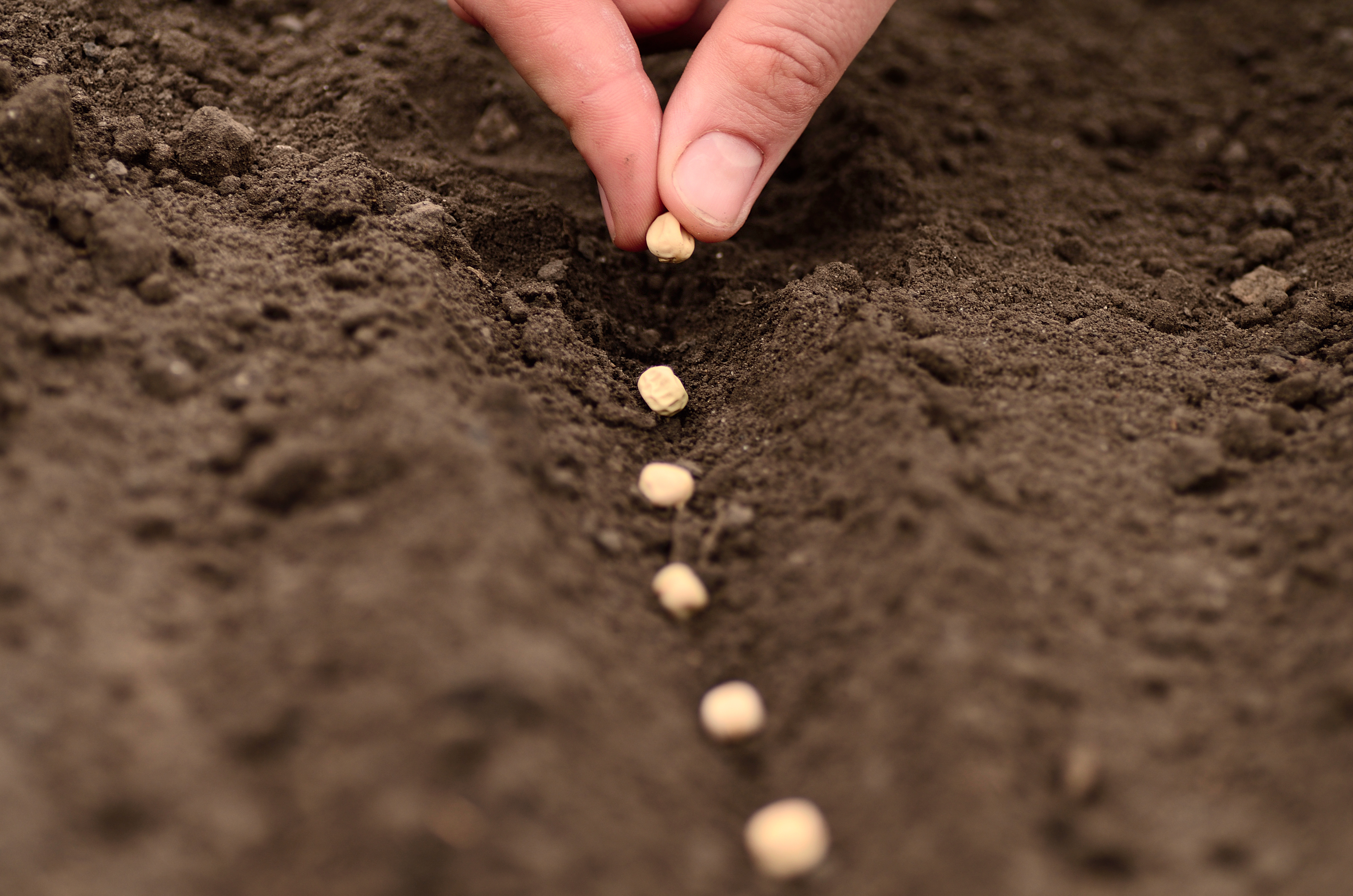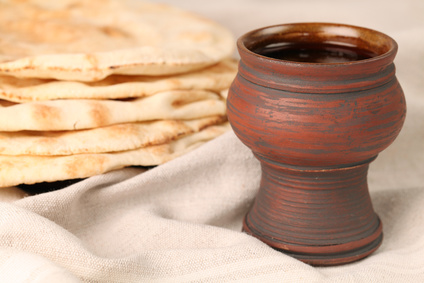
Diatribo: Return to the Garden
When my husband and I visited Wales last year, I became fascinated by the small village community spirit. One evening in the lovely village of LLansawel, after walking beside a small river in the cool of the evening, the green blanket of grass covering the banks as we strolled down a medieval paved street of stone, my husband and I found our way to the local pub. I honestly felt like I just walked into a Tolkein novel and Hobbits would appear at any moment. We were warmly welcomed—and even more so when my husband joined in by speaking Welsh.
We were invited to sit at the main table with the locals. It was an old wooden table and there were half a dozen people there already. After a short while, watching the body language and listening to a conversation I did not understand, I could not help but ask a woman at the table, in English, “How long have you lived here?” She replied, “All my life, I was born here. I am the sixth generation.”
I told the woman that I was absolutely fascinated with the idea of living in the same place in light of the fact that never residing for long in one city; I lived so many different places in the United States. I asked the woman this question: “Do you find that because you have lived here all your life, that you are expected to behave in a certain way or that perhaps you cannot grow beyond a certain point because others may have a certain expectation of you or may not understand?” The entire table stopped talking—the language of Welsh switched off. The atmosphere suddenly changed—it seemed a window opened up blowing in something and all at once we seemed to be dialed into a profound moment.
One at a time they began to reply to the question in the English language; “The truth is, everyone knows each other. We know who everyone is and they know who we are. We may not always see eye-to-eye, but when someone is in need, we all help out.” Another man replied: “to put it bluntly, we know the measurement of everyone’s inseam (bursting out the laughter of all.) But when anyone needs help, we are there to help even if we don’t always see eye-to-eye. We are a close community and know everything about everyone. In fact, most of us sitting at this table are related.” At that point, I asked, “ Do you find that this causes you to feel like you do not have any privacy?” They all simultaneously burst into laughter once again and began to joke about the community dynamic.
A profound thing happened in a small moment that evening in summer, in this enchanting and somewhat ancient little Welsh town of 600 people. I felt validated, included, and significant with people I never met in my life. I actually felt like a member of the community for just that small moment because they let me in on something I considered rather personal. When my husband burst into singing a Welsh hymn: here we are, in the middle of Middle Earth in a Welsh pub with wooden tables singing and drinking ale while everyone is smiling; rosy faces full of joy, having the time of our lives with people we never met in our lives or will ever see again. It actually brought tears to my eyes—oddly enough, I saw others a bit touched as well. We participated in this gifted moment: aliens becoming a community, aliens becoming “family.”
It was this encounter that initiated my vision of community and fed my prayers for small group communities of believers who get in touch with each other in such a way as though they have known each other all of their lives. I have to believe that in this age of autonomy and isolation, we can experience relational community like family with the Body of Christ in the Power of the Holy Spirit. In the book of Acts, believers gathered by meeting in homes, worshiping, praying, and breaking bread together. This concept is what my “vision” is based upon, in the spirit of Diatribo.
Diatribo is such a beautiful word in the Bible. In the Greek, it means: “stay with,” or “abide with.” This is how the people of LLansawel, Wales live their lives. LLansawel actually means: “Centered around a church.” Small groups are like the villages centered around the church. Diatribo is the way of life we hunger for because we are Christians. It is a natural desire to enter into relationships and abide with others as we abide in Christ. I am the vine; you are the branches. If you remain in me and I in you, you will bear much fruit; apart from me, you can do nothing (John 15:5). We abide with Jesus and it is His will that we abide with each other in one mind and one accord: so that with one mind and one voice you may glorify the God and Father of our Lord Jesus Christ (Romans 15:16). Diatribo is returning to the Garden to walk with God in the cool of the evening and witness a renaissance of gifting and purpose come to life in The Body of Christ.
Rejoice with those who rejoice; mourn with those who mourn” (Romans 12:15).
When I shared my passion for small groups with my husband, I asked him what he thought mattered: “Feeling valued leads to healing. Feeling significant leads to confidence”—Eric Bowen
This is a broken world we live in and we are broken people. We all need healing and confidence to make a difference. We need to be honored and validated for who we are and encouraged in the Body of Christ to become all that God created us to be, with all our talents, personality, spiritual gifts, shortcomings and weaknesses, failings and victories. Above all, in all of this we honor and value who we are in Jesus Christ. Prayer is an integral part of a small group and brings validation to the love of God. Prayer initiates God’s will in the midst of believers. The early believers were noted for their diligence in prayer.
Small Group Mission Statement: Honor and Validation of Others
Small Groups honor and validate each person’s unique identity in Christ as we travel on different roads of spiritual growth. We offer a safe place to soak in the Word, develop healthy relationships, pray, break bread, and encourage the Body of Christ with each spiritual gift. We do not seek to fix or advise, but rather to pray with each person to be directed by the Holy Spirit to find solutions and celebrate victories through circumstances that build faith and character as we grow spiritually in unity.
Cultivating: The Word of Our Testimony
Small groups are about connecting with others and cultivating God-centered relationships as we share our stories with one another. This brings us into a fellowship with the Holy Spirit and fellowship with others. A small group is about going the distance: “not always seeing eye-to-eye but being there when there is a need.” Going the distance means not only hanging in there during difficult times but celebrating victories. Small groups walk as Jesus walked in the spirit of Diatribo.
Jesus is in our midst and the Holy Spirit ministers truth as each responds with their unique point of view

It takes time to build relationships especially to the point of becoming transparent. If it is just about study, where is the life in it? That is where sharing both the “word” of our testimony (Revelation 12:11) and the Word of God comes in. When believers come together to share the Word; Jesus is in our midst and the Holy Spirit ministers truth as each responds with their unique point of view. We need to honor the perception of others in terms of what is real to them. I also believe that sharing the word of our testimony brings small groups into more intimate relationships—I believe it is a Biblical dynamic that God intended for us to do while we fellowship. Sharing what God has done in our lives builds faith—God loved to remind His people over and over how He delivered them from Egypt. It is a powerful thing for Christians to share how God has delivered them from all the circumstances we face in life; the “Egypt’s” of trials and tribulation, bondage, addictions, and sin in general, etc. Sharing our testimony is not just about how we came to the knowledge of the truth or were saved, however. It also embraces what God is teaching us on a daily basis. It is also what my friend Kat calls, “God Sightings,” sharing the wonder and victory in our lives led by the Holy Spirit of the living God.
On the Farm: Plowing, Watering, and Harvest

My friend Kat started a singles small group on the farm I lived on many years ago. Friendships were difficult to form in the group at first because many seemed to carry all the hurt experienced in relationships. Then I watched a beautiful thing happen: Kat began to “validate” what each person shared—she commented and asked others to comment. There was an art to this kind of communication that amazed me because it birthed the spirit of fellowship in such a way of creating healing of broken hearts. Kat also had a way of leading comments away from “counseling.” In other words, she avoided “fixing” people. Kat rather directed the conversation towards allowing God to enter into the conversation—bringing in the Word. Jesus joined in the group—He sat in our midst in diatribo as we experienced diatribo in an honoring way. Kat had a way of asking questions in such a way as to point to solutions in terms of what the Word says: “What fruit of the Spirit do you see helping in this situation?” “What Psalm can we read to encourage so and so?” “How did Joseph forgive his brothers?” This brought a sense of hope and resolve into every dilemma. Communication began to grow as we learned how to look at situations from the perspective of the wisdom of God found in the Word.
Prayer, Prayer, Prayer
Then Kat started a “Prayer Journal.” Whenever a prayer was requested, we logged it into the journal. As prayers were answered, we began to celebrate victories. As a matter of fact, every single prayer was answered that we logged into that Prayer Journal.
The Rose of Sharon: Instinct
We developed an instinct for addressing matters with the direction of the Holy Spirit on how to pray. The word instinct refers to unconscious thoughts or actions that are conditioned into a person through repetitive behaviors, habits, or experiences. The kind of instinct that I am referring to are instincts formed when we process and reflect on experiences through the lens of the Word to understand what happened; how God was at work in that situation. Instinct is developed as we read the Word and learn what the voice of God sounds like. When the Holy Spirit brings illumination to the Word, we are conditioned to hear His voice in the midst of circumstances. If something we think is God does not sound like God, then that is the rubric of instinct. That means that not every word we hear is God. His Words sound like the Word and the Word confirms the truth of what we are hearing. Also, not all circumstance are from God, instinct also means watching how God “works all things together for our good.” This accumulation of wisdom began to allow us to instinctually know what to do and say and how to act in a particular situation because our vantage point is from the Word. God created our brain so that we can grasp patterns in His Word and then apply the wisdom from the Word in response to each situation. As small groups grow, the Holy Spirit teaches us how to see those patterns as we learn and grow and enter diatribo in honoring relationships.
*Kat always mentions that when someone is sharing, it is good that they share their experience (their personal point of view) rather than offering advice in response to what someone else has shared. This allows others to glean what they wish to glean according to their “free will” while respecting other points of view. Also Kat makes sure that the more quiet people have a chance to express themselves. We want to see change and transformation in lives but that does not mean we are here to fix each other. That is God’s job and He is much better at it than we. Instinct may lead us into the gift of discernment on this matter.
Small Groups Fellowship with The Spirit: Breaking Bread & Soaking Nurtures Loving God and Each Other in the Garden
Not forsaking the assembling of ourselves together, as the manner of some is; but exhorting one another: and so much the more, as ye see the day approaching. (Hebrew 1:25).
…speaking to one another with psalms, hymns, and songs from the Spirit. Sing and make music from your heart to the Lord (Ephesians 5:19).
The Plow: Imparting Culture into Small Groups
Founded in Prayer:
- Breaking Bread—Fellowship with family in a meal or celebration. Communion and foot washing on certain occasions.
- Humility—A time of worship and prayer in the presence of God in a small group capacity. This can happen periodically for the entire meeting.
- Combine Breaking Bread with Soaking
- No Fixing: When we share in response to someone else’s story, just share your story. Speak from your point of view by honoring and respecting others drawing from your story any insight if and when they choose. Always pray for direction instead of offering advice—God is more than capable. This is honoring what God wishes to do outside of our agenda or preconceived ideas.
- Sometimes instinct is in knowing that someone just needs a listening ear—not a comment. Small Groups need to be educated and sensitive regarding how to embrace each person, validate comments or just give someone a hug.
- During prayer time, it is a good idea to voice our needs at that time in a few sentences. We do not need to give the whole story—ask how the Holy Spirit wishes for you/us to pray for someone. If someone needs to voice their whole story, offer a place and a time to do so. However, this is a time to voice your issues and seek God’s guidance. Perhaps consider directing someone to Christian counseling if someone is in crisis.
- If someone asks you to pray for them, make sure you don’t make it about you. Focus on the person who has come to you for prayer. Their experience is not going to be like your experience. Please keep your testimony for another time and place unless asked to share.
- If you cannot say something to someone in person, please do not say it at all. There is nothing more damaging than talking behind someone’s back in a negative or judgmental way. It often causes pain and division and sometimes injure relationships to the point of no return. We are responsible to honor and respect others even when we do not see eye-to-eye. However, God can redeem anything so we don’t have to start all over again with a confession and request for forgiveness if we mess up.
- We are adults, not children. Please do not take offense. If you are offended you may be responding to your own baggage or issues regarding something you need to address. Let’s practice the grace that we have been given–the last words our Jesus spoke were: “Father forgive them they don’t know what they are doing.” If we can remain who we are in Christ in the midst of offense, rejection, and unfair treatment, we have put on the unconditional Love of Christ.
- If your Words in a group are not uplifting and encouraging to others, consider journalling to vent your issue.
- Remember, the Body of Christ is the Body of Christ in any church that believes in Jesus Christ and are diligent about following the Word. Honor goes a long way in communication and bridging gaps in belief because it is an illustration of LOVE.
- Jesus loves EVERYONE. Maybe that is because we ALL need LOVE. Jesus respected the tax collectors and social outcasts. Maybe that is why many of them followed Him.
Discernment: When, Why, and Where?
- How long, how often, and when groups should meet. This also means offering the group longer and shorter durations for certain goals to be met such as a six-week Bible study or activity for that duration of time only.
- When groups should dissolve—how to be sensitive to the need for other groups to be birthed out of your group
- When groups should birth other groups—consider a time to facilitate a short-term group in an existing group: mission, activity, or project
- How to handle conflict in a group. It is important to teach facilitators about conflict resolution and where they can ask for support. Also if facilitators are educated in conflict resolution, they can inform others in the group how to apply this tool of communication in everyday situations at home, school, or work
- How to facilitate mediation into a situation of all of the above. How far to go when it seems necessary
- How group leaders should navigate relational tension in the group in a constructive way to avoid offense. (Mediation from the “outside” is a great tool in all conflict resolution.)
The Garden: Planting a Small Group
It is important for small group facilitators to understand how to guide the group into diatribo and away from group therapy. Small Groups are communities of God’s people that have the opportunity to be all that God has created us to be. Let’s not take it for granted that God loves each person so much that He gave His only begotten Son. Every single one is on a different journey in this life. Honor the fact that we all have different needs. What we all have in common is the fact that we wish to learn how to be more like Jesus—to be changed from glory to glory in His image. Everyone is on a different “glory road” because God is cultivating different seeds for different gardens of purpose and callings in each special and precious life He created from the foundation of the world. Pray:
- State that this is a safe place and what is shared is confidential
- We are here to fellowship and grow on our spiritual journey. Each person has a story. We need to be sensitive in honoring each one’s opportunity to share—please be aware of the time you are taking so others have a chance.
- Please allow the person to express their idea fully. Please, no interruptions while someone is sharing. No rushing or putting words in someone’s mouth unless they ask. Listen in a respectful way as you would like others to listen to you.
- Validate that idea after they finish. You can do this by repeating their idea and by making a comment in terms of what you understood them to say. Then ask others to join in. Thank the person who shared following the comments and validations so that they recognize that they were “heard.”
- Refrain from trying to offer advice. Instead, seek God’s Word or the direction of the Holy Spirit in prayer at that moment or later on.
- Keep the focus on what God is doing rather than what the devil is doing.
- Ask “Word focused” questions such as: “What fruit of the Spirit do you see needed in this situation?”
- Direct the meeting by informing the group that we are not meeting to strictly voice our issues. Be aware of people who need help with issues and facilitate a place to address those issues. Discernment between issues, crisis, abuse etc. needs to be addressed in a particular way that the Small Group Ministry team should be equipped to help with extensive circumstances and be willing to get “involved.” There is nothing more contrary to a believer’s walk than ignoring a real need and failing to honor someone else’s need for help.
Scouting the Land: Addressing Expectations
Scouting the land means finding out what to expect. There are many people who are frightened of the idea of small group engagement—it typically is intimidating. When I attended a communications class at University, the professor led the most amazing exercise when we started the class. She had each one write out three things regarding their expectations of the class which we shared afterward:
- What do you expect from yourself?
- What do you expect from your classmates?
- What do you expect from me? (the professor)
This was one of the most successful and transparent classes I ever attended. It was a safe place because we all understood what was expected and remained accountable to those expectations. The most common expectation was in needing respect for each other even if we did not agree—to respect difference and remain responsible for ourselves is an honoring behavior.
Crossing Over: Create A Mission Statement
This is going to depend on each group and some may not wish to create a mission statement. Creating a Mission Statement for your small group begins group identification. It makes your group unique and establishes a collective purpose and vision. This is something to pray about with the group and allow everyone a chance to brainstorm together. This is also an opportunity to discover more about each other’s callings and gifting’s. This concept establishes what the group wishes to “grow on their land.”
Taking the Land: Spiritual Gifts
Do not neglect your gift, which was given you through prophecy when the body of elders laid their hands on you (Timothy 4:14).
This is the spiritual calling on the Body of Christ that was planned for the edification and equipping of the Saints at the foundation of the world. A perfect setting for people: to discover, experiment, experience, and be encouraged in developing; help facilitate the use of those gifts at appropriate times and places. Honor each person by drawing upon the treasures you see in them. Remind them that they have a special purpose in the Body of Christ and help each other develop and validate the calling in their lives. The gifts and callings of others manifest in such a way as to make a difference in the world and bring the Kingdom to earth.
Till and Water the Soil: Nurture Significance
Nurture significance by teaching others how to facilitate significance. Facilitators model transparency by soul sharing, by talking about real needs and issues in an open and honest manner. A group can tell when you’re being transparent or superficial, and they’ll follow your lead. Your transparency will give your group members “permission” to be transparent. This is part of tilling the soil of relationships. This is how we learn instinct. This is illustrating trust and a safe place for others. The facilitator in the group is a “lead” in respect to what filters out upon the group in other words.
Everyone is different and everyone requires a different response or validation to what they just shared with the group—remember, everyone has a story and that story is important and precious to God. However, we are not in a position to counsel people. It’s okay to be silent. It’s okay to do nothing but stand with them in love in a respectful manner. This is growing significance when we acknowledge others in a sincere and honoring way. When people share experiences that have negatively impacted their lives, it’s is human nature to attempt to make them feel better about the situation or about themselves. However, The Body of Christ has been given a promise: in Christ we have died and been resurrected in Christ. We can approach God through “direct leaning” through The Holy Spirit about our very own life.
Blossom, Bloom, and Grow: LISTEN
Remind people to listen even if you have to spell out what that means. You will be amazed at how group dynamics blossom when we really listen. I learned from Kat to allow people who are sharing to sort it out and say what they’re thinking and feeling rather than rushing in to rescue by putting words into their mouths. Rather than rushing in to finish their thoughts for them, be patient and allow them to express themselves in an honoring way. Please be considerate and avoid interrupting when someone has a point they are making even in a discussion.
Keep Watering the Ground With Kool-Aid
The Body of Christ is family. When we set out to have a serious group without integrating fun, the Spirit is quenched. People are easily intimidated, and may not open up. When it’s all about the same agenda week after week it is no fun. When we take time to have fun together, people begin to open up. That is human nature, isn’t it? It is important to break bread together and have fun by drinking a little “Kool-Aid” like when we were kids; having a BBQ or pot-luck once in a while promotes a family atmosphere. Fun and family dynamics water the ground of relationships to grow—“people ‘play’ together, stay together.” Above all, an honoring environment even when we are goofing off and being silly promotes trust and meaningful fellowship. Try to avoid sarcasm, teasing, or joking at someone else’s expense.
Water the Wilted Spirit Blossom:
Small groups blossom when there is validation and love coming from each one. Often, people in the “background” are the ones who need the group most of all. Not everyone is going to be able to participate—that is where the facilitator needs to continue to love on that person and ask how they are doing (as they are led to do so.) Be sensitive to the fact that everyone who comes to the group needs validation and love, even if they do not contribute a thing. More than likely these folks are learning to trust. They are thirsty for a relationship; these are the people Jesus says to offer a cup of water to. That drink of water is going to help blossom that dry spirit into a remarkable garden. That special soul on the sidelines may have no one else to validate or to love them. If we ignore them they will leave—this is a chance to really exhibit Jesus. (This can be done without patronizing someone in a simple, “how is your week going?”)
Fruitfulness
“Fruitfulness is the goal in a small group; fruit that lasts. Spiritual fruit is produced when we encounter the working of the Holy Spirit. Spiritual fruit is germinated by the actions of faithful Christians who attempt to live out the instructions of Scripture in harmony with the Holy Spirit. When God takes the human efforts of believers and divinely touches their issues, lasting fruit is produced. This is something we can support each other in as we grow individually within our group and as a group of fruitful believers contributing to the community”—Christianity Today
Rotate Fields: Brainstorming Restructuring
I like to integrate the concept of “breaking bread” because it nurtures a family environment and brings in the element of celebration. We have a lot to celebrate as Christians and we should have lots and lots of parties and lots and lots of fun. I also integrate “soaking” into the group concept of worship and prayer in more intimate settings. Soaking is worship and prayer during a small group meeting in fellowship with the Holy Spirit and each other.
- Re-structure the existing groups by seeking folks who have a willingness to step into serving others by rotating. These folks are willing to temporarily leave their group and “adopt” a new group to get it started and disciple others who have a willingness to facilitate the new group later on. Small Group Ministry assists in this process by offering a relational approach by standing with the facilitator and his/her “apprentice.”
- Initiating new groups on short terms basis:
- Revolving specific 6-month topics of interest based on surveys. Allowing time to worship, share testimonies, break bread, and prayer time. Facilitators will have an opportunity to choose another topic to lead every 6 months or take a sabbatical from leadership.
More Planting: Discipleship
It is so important to offer the new believer into the family of God. These groups may be temporary or may last for a long time.
- Nurturing discipleship for new believers, breaking bread, and prayer
- Specific ministry workshops, breaking bread, and prayer on topics
- Facilitating mentors for new believers to call upon and stand with during their transition from the “world” into the Kingdom of the Living God.
Maintaining the Garden—Open to All the Body of Christ
The time of Sukkot in the Jewish tradition is a time of celebration (simchah-joy) extending from a time of (Teshuva) of repentance. Our salvation is a celebration–and testimonies strengthen our faith as we honor and glorify God for what He is doing in our midst.
- Quarterly gatherings with small groups as a whole, breaking bread together, sharing testimonies, worship, and intentional outreach to others attending by breaking into ministry groups and promoting an attitude of the family. This facilitates the opportunity for outreach to people searching for a small group.
- Testimonies, testimonies, testimonies, galore!
- Remember to help bring out the treasures hidden in those we share the Spirit of the Living God with.
Other Focused Out Reach: The Root System
- Small group intention of seeking opportunities of ministry to others with the focus of the local community as our mission field.
- Small groups brainstorming their group mission field and vision. Long term and short term missions.
- Outreach in terms of a World vision—perhaps a campaign to help a community in a third world country.
- Helping in other small groups by encouraging or volunteering to be a facilitator.
- Joining other small groups in a specific endeavor in what ever capacity needed.
Fertilizing Facilitators:
- Small groups facilitators need encouragement to keep going.
- Small groups facilitators need good resources. That means curriculum and a variety of resources that will help them with learning: how to validate others, including others that may not wish to share, “lead” discussion and handle sensitive situations including conflict and severe issues.
- Small groups facilitators need to be validated by celebrating their efforts of incidental and magnificent group accomplishments without disclosing personal information.
- Facilitators do not have to do everything to facilitate a group. Place a basket in the middle of the table for members to make a contribution to group needs. Assign other tasks—this causes a learning environment rather than a teaching environment.
- Look for opportunities to bring out the treasures in each person. This will “build up the Body and equip the saints.” This will also help others to follow suit and develop a spirit of love and encouragement.
Living Waters: Refuge Time With God with Other Facilitators
Worship service with just music can be a time of refreshment and encouragement in the presence of God in intimate settings. Provide time with God in this capacity for those in ministry who need refreshment in a separate group setting with other facilitators. This can be accomplished in a number of ways: returning to the established home group for support and testimony time regarding their personal experience with the small group they “adopted” without disclosing personal informational. Setting up a retreat for those in ministry or for the small group. Retreats can be in someones’ home and allow time to study, soak, and break bread together.
- Time in worship in the presence of the Holy Spirit. Group ministry by other facilitators in prayer, listening, and breaking bread.
- Rotating speakers on any subject they wish to speak on. This allows people to practice their calling or specific gifts and passions.
- Small groups facilitators need prayer support and to know they’re being cared for and appreciated.
- Treasure hunting in terms of validating and recognizing the beauty and gifts in each other.
- Goal setting in a collective and personal capacity is a powerful method of reaching to the stars in terms of bringing the Kingdom of Heaven into our reality and daily lives more and more. Stay focused on the goal by keeping the vision fresh collectively by stating it over and over. Ask weekly how we are doing and offer help. This keeps us in “one mind and one accord.”








I’m still learning from you, while I’m improving myself. I certainly liked reading all that is written on your site.Keep the information coming. I enjoyed it!
Dear Sally
This might well be your “magnum opus,” the most significant of your visions and your articulation thereof. You could found a whole ministry, a whole purpose in life, in putting into action what you have put forth here in words.
Love
Eric